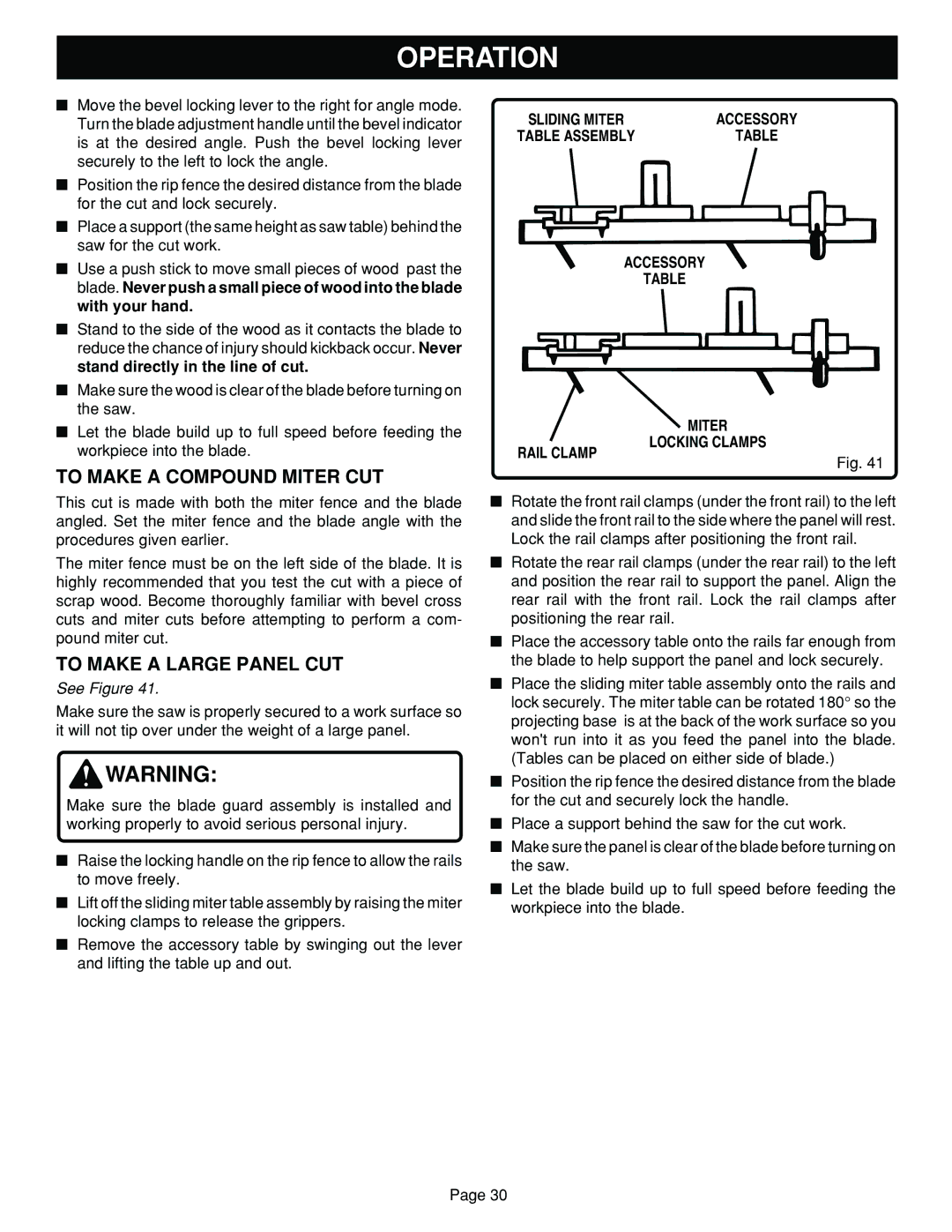
OPERATION
■Move the bevel locking lever to the right for angle mode. Turn the blade adjustment handle until the bevel indicator is at the desired angle. Push the bevel locking lever securely to the left to lock the angle.
■Position the rip fence the desired distance from the blade for the cut and lock securely.
■Place a support (the same height as saw table) behind the saw for the cut work.
■Use a push stick to move small pieces of wood past the blade. Never push a small piece of wood into the blade with your hand.
■Stand to the side of the wood as it contacts the blade to reduce the chance of injury should kickback occur. Never stand directly in the line of cut.
■Make sure the wood is clear of the blade before turning on the saw.
■Let the blade build up to full speed before feeding the workpiece into the blade.
TO MAKE A COMPOUND MITER CUT
This cut is made with both the miter fence and the blade angled. Set the miter fence and the blade angle with the procedures given earlier.
The miter fence must be on the left side of the blade. It is highly recommended that you test the cut with a piece of scrap wood. Become thoroughly familiar with bevel cross cuts and miter cuts before attempting to perform a com- pound miter cut.
TO MAKE A LARGE PANEL CUT
See Figure 41.
Make sure the saw is properly secured to a work surface so it will not tip over under the weight of a large panel.
![]() WARNING:
WARNING:
Make sure the blade guard assembly is installed and working properly to avoid serious personal injury.
■Raise the locking handle on the rip fence to allow the rails to move freely.
■Lift off the sliding miter table assembly by raising the miter locking clamps to release the grippers.
■Remove the accessory table by swinging out the lever and lifting the table up and out.
SLIDING MITER | ACCESSORY |
TABLE ASSEMBLY | TABLE |
ACCESSORY
TABLE
MITER
LOCKING CLAMPS
RAIL CLAMP
Fig. 41
■Rotate the front rail clamps (under the front rail) to the left and slide the front rail to the side where the panel will rest. Lock the rail clamps after positioning the front rail.
■Rotate the rear rail clamps (under the rear rail) to the left and position the rear rail to support the panel. Align the rear rail with the front rail. Lock the rail clamps after positioning the rear rail.
■Place the accessory table onto the rails far enough from the blade to help support the panel and lock securely.
■Place the sliding miter table assembly onto the rails and lock securely. The miter table can be rotated 180° so the projecting base is at the back of the work surface so you won't run into it as you feed the panel into the blade. (Tables can be placed on either side of blade.)
■Position the rip fence the desired distance from the blade for the cut and securely lock the handle.
■Place a support behind the saw for the cut work.
■Make sure the panel is clear of the blade before turning on the saw.
■Let the blade build up to full speed before feeding the workpiece into the blade.
Page 30
